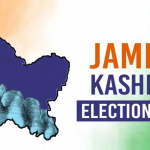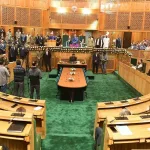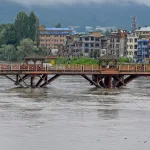GEO POLITICS
The world must not close its eyes to the ongoing deadly conflicts, threatening to engulf it. The blood-soaked conflict between Russia and Ukraine and the one between Israel and Hamas outfit coupled with the potential Iran -Israel confrontation — are hinting of the region sliding into a wider war.
This year in April, Iran reportedly launched hundreds of drones and missiles towards Israel. Barely a few days back, the Islamic republic is said to have launched scores of ballistic missiles towards the Jewish state, underscoring the decades- long animosity reigning supreme between the two ideological adversaries.
April 13 attack was purportedly in response to Israel’s April 01 air-strike on the Iranian consulate in Damascus, Syria. Israel’s retaliation in one way or the other since manifests its deep-seated desire: maintain a dominant position against all odds.
Overlooking Tehran’s recent strikes is unlikely. From Israel’s perspective, doing so, could embolden the forces presumed as the former’s “proxies” in the region and leave the latter vulnerable. Consequently, Tel Aviv’s counter attack cannot be discounted although its potential downside foreshadows further tensions in the war- stricken region. Hezbollah is challenge Israel; the latter is not deterred though.
Meanwhile, the horrific war underway between Israel and Hamas could have played a key role in causing Israel and Iran to cross swords. Tehran bitterly opposes Tel Aviv’s action in Gaza. Is Iran seeking to portray itself as a champion of the anti- Israel war?
If Iran’s strategy is to engage Israel on another front to weaken the latter’s fighting capability, it is hard to subscribe to this thought line: Tel Aviv is no pushover and its resolve has strengthened.
Contrarily, Tehran’s strikes against Israel should boost the morale of the Iranians apart from reinforcing their confidence in their country’s government. Incidentally, it will also come as a risk- fraught distraction from the domestic issues. Following Israel’s undeterred onslaught— promoted by its geopolitical compulsions— Iranians could have been under pressure. Has the last week’s counterattack by Iran reassured her people?
Israel acts tough against those it views as its foes .Believing that Tehran is backing Hamas and other “anti-Israel groups” in the region, Israel is walking an extra mile to secure its geopolitical goals. Lebanon based Hizbollah and Israel are fighting it out, leading to several deaths and injuries on both sides.
Israel’s possible strike in response to Iran’s fresh missile attack is feared to spark a broader conflagration. Should things escalate, how will the international community separate the fighters? What if the regional powers step in to take sides, not strive to douse the fire? A world war looming large?
It is in order to point out that Israel’s fight- to -finish response is not a wild goose chase. Rather it appears as the Jewish state’s well thought out strategy which ostensibly is aimed at showcasing her fighting capabilities on multiple fronts simultaneously.
Secondly, the attack on Iran or its regional allies could earn Tel Aviv the goodwill of Iran’s rivals. This can reinforce its stance on the Palestine question as well, to say the least. Thirdly, fighting tirelessly is possible to reassure the people of Israel that their government and country is competent enough to protect their life and property. A high national morale can generate considerable support for the incumbent government, allowing it to carry on with its war against Hamas, Hezbollah and Tehran in tandem.
Taking on Iran could be productive for Israel from another angle: it may garner significant backing from the US- led West. America esteems Israel as its principal regional ally and Iran, enemy number one. And in the worst case scenario, the Iran-Israel confrontation may pull in the Gulf countries, making the entry of the US inevitable. Needless to say, this will suck in Russia and China; a horrendous global confrontation thus is knocking at the door.
Pertinently, Saudi Arabia could find itself on the horns of dilemma. Having enjoyed good ties with the US and the other western states for decades, it will not be easy for Riyadh to decide the course of action in the current scenario. On one hand, Riyadh’s support to Tehran could strain the former’s ties with the US, Israel’s all-weather ally. On the other hand, not backing Tehran’s anti-Israel move is unlikely to settle well with the Muslim countries favoring Palestine or not critical of Hamas.
Another cause of concern for Saudi Arabia should be Iran’s status in view of its anti-Israel posturing. Israel takes a lot of stick for its confrontation with the Palestinians and against this backdrop, Tehran’s tough stand against Israel might enhance its (Tehran’s) stature in the region and beyond.
It effectively can win Iran tons of appreciation and applause among its allies , displaying it as a very powerful player at the global stage— something Riyadh may find hard to come to terms with due to its constant endeavor towards leading the middle eastern region — a major cause of Saudi Arabia – Iran rivalry.
Meanwhile, the muscle flexing by Israel and Iran has stunned the Arab world fearing another regional war could sink the already devastated region. And if it materializes, the consequences will not just be regional but global.
The immediate priority of the United Nations must be to intervene with an abiding ceasefire across the warring region. This global institution’s very purpose of existence is at stake amid the rising tensions in the Middle East. With both Iran and Israel standing firm in their positions, and the U.S. and Russia waiting in the wings, a broader Middle Eastern crisis is likely. So not putting an earlier end to the simmering tensions is threatening to send the world up in flames.
(Author is RK Columnist and teacher by profession. Feedback: Sheikhshabir518 @gmail.com)







